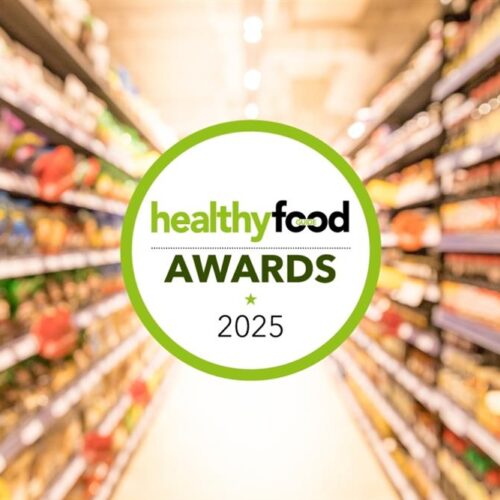
New Zealand teams recommend solutions in Kenyan community.
Together ChildFund New Zealand, Otago University’s Human Nutrition Department and Kenyatta University are tackling the complicated issue of childhood malnutrition. Their work is highlighting the importance of education around nutrition and its importance in overall health and development.
In the rural township of Emali, Kenya where extreme poverty is endemic, Otago’s Human Nutrition team led by Dr Lisa Houghton with colleagues from Kenyatta University gathered blood samples from 518 children aged three to five years from two tribal groups, the Maasai and Kamba. They found anaemia, iron and zinc deficiencies that were much more severe and widespread than previously assumed with 75 per cent of Maasai children suffering from iron deficiency alone.
Children’s health and diets were also studied in detail. Stomach upsets, fevers, and respiratory illnesses were extremely commonplace leading to a vicious cycle of reduced appetite, less food eaten, lowered immunity and more illness.
It became clear from surveying caregivers that their biggest challenge was a lack of knowledge about the nutritional needs of children under five. Recommendations were made on what children were fed, how often they were fed, and how food was prepared to provide the vital ingredients for a plan to tackle the poor health of children.
Caregivers, including parents, head teachers, early-childhood teachers and community health workers, took part in workshops on child growth, nutrition and food preparation. The main objectives of the nutrition workshop were to help caregivers to:
-
Understand the importance of nutrition for children in the first 1,000 days of life.
-
Know the key nutrition behaviours to be promoted through the Garden Project. That is, getting the right nutrients for growing children; proper selection and care of nutrient-rich cultivars, proper processing and preservation method of foods harvested from the gardens. (The Garden Project involves the use of ‘gunny bags’ – sacks that can be filled with nutrient-rich soil and used to grow a variety of vegetables. They are used in schools and homes.)
-
Understand the concept of dietary diversity and what it means. That is, the need to mix nutrient-rich greens with staples; get more protein into the daily food intake of growing children; eat a variety of foods across the food groups; ensure dietary diversity through growing more diverse vegetables through home and school gardens.
-
Know the important feeding practices related to children under the age of five. For example, small servings but more frequent than at present; provide breakfast; essential nutrients for healthy growth and resistance of diseases; feeding three- to five-year-olds three nutritious meals every day and healthy snacks between each meal. (One challenge has been the practice amongst Maasai of filling young children up on a weak milky tea, which serves as a meal meaning the children will not eat other foods.)
-
Training in the use of education resources to support nutrition behaviour change. Community Health Workers who have been trained are the group leaders, ensuring that they are using education materials to support behaviour change among the caregivers.
-
Have a plan for where and how to integrate nutrition education into current activities. This includes nutrition training during food preparation which is normally done by the cook assisted by the early childhood centre parents.
- Understand nutrition assessments, screening and referrals. Emphasising the importance of growth monitoring and promotion to identify different types of malnutrition which can either be handled at the community level or referred to a health facility.
It also focused on challenging community practices that undermine and discourage proper nutrition, and parents identified other challenges to good nutrition, such as a lack of equipment for food preparation and serving. The workshops encouraged ownership of the project by parents and caregivers. Parents, for instance, organised groups for assisting the early childhood centres with cleaning and preparation of food.
Out of the workshop came the following proposed solutions:
-
Each early childhood centre to purchase cooking utensils such as sufurias (cooking pots), serving spoons, plates, tablespoons and a meat mincing machine.
-
Children to be fed on eggs three times and eat chicken meat once a week.
-
Children to eat vegetables every day and parents to use empty nylon sacks from the feeding program to revitalise the kitchen gardening. The sacks or gunny bags are used as ‘pots’ for growing vegetables.
-
Parents will construct a separate poultry pen to ensure a fresh supply of chickens.
- Food for early childhood centre children will be cooked separately from the entire school while early childhood parents will support school activities.
The result so far is:
-
At 32 early childhood centres, children are eating well cooked and rationed foods.
-
At 12 early childhood centres, children are eating foods enriched with animal proteins, ie. chicken meat and eggs.
-
At nine early childhood centres, children are eating foods enriched with vegetables every day.
-
Teachers and parents in all the 32 early childhood centres supported by the project have accepted participating fully to ensure the success and continuity of the project.
- Seventy-two caregivers and parents in 18 early childhood centres have been trained and sensitised on the importance of participation in school feeding programmes.
Next year the Otago Human Nutrition team with ChildFund are planning to visit Emali to assess whether children are any healthier as a result of the activities.
Understanding the reasons for childhood malnutrition and developing practical ways to address it is vital to ensure young children grow up healthy. The research and the solutions put in place in Emali, if successful, could be replicated in other communities ensuring generations of children are given the best possible start in life.
To support ChildFund’s work, visit www.childfund.org.nz to find ways to get involved.
This upcoming Mother’s Day is a perfect opportunity to provide the gift of a Nutrition Training Voucher for a mum (or dad) in Emali, Kenya, more here.
www.healthyfood.com










